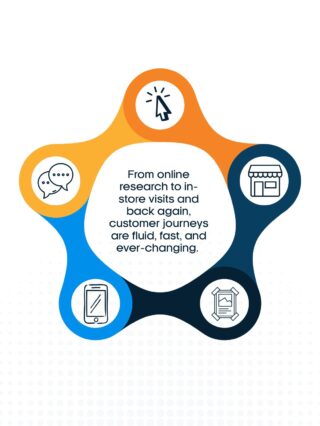For those of us who follow the digital marketing space, talk of the death of the third-party cookie is nothing new. The unbridled data collection made possible by third-party cookies has always been problematic. Some of the more questionable practices that this tracking device has enabled have been a big part of the impetus behind privacy legislation like GDPR and CCPA. Despite all of this, the third-party cookie has been a durable tool. It has proven supremely useful for marketers and publishers of all kinds, in many ways making an ad-supported web possible. It has even largely survived Apple’s various rounds of their Intelligent Tracking Prevention (ITP) that blocked third-party cookies in their Safari browser and Firefox’s decision to block third-party cookies by default. That has left us all wondering what Google would do with its Chrome browser, and now we finally know. Google officially announced on its Chromium Blog on Tuesday that it intends to phase out third-party cookies altogether within two years. Chrome, Safari, and Firefox account for about 85% of browsing activity worldwide. Even the toughest of third-party cookies can’t survive numbers like that.
Since third-party cookies are largely what we’ve all been using to track online behaviors for years, it’s worth taking a moment to break this down into a few pieces that are easy to digest.
What is a Third-Party Cookie Anyway?
Simply put, a cookie is a bit of data that a website stores in your browser (Firefox, Safari, Chrome, etc.) when you visit. Cookies were initially invented to allow a website to remember things about you, such as your username and password or what buttons you clicked. These are first-party cookies because they open up a data transfer between you and the website you visit. A third-party cookie follows the same concept, except that it drops that data onto your browser and opens up a data transfer between you and a third-party–usually some kind of marketing or data service. Those marketing or data services collect data on your browsing habits to build audiences that are largely used for some form of ad targeting or retargeting.
What Happens When Third-Party Cookies are Blocked?
Browsers like the ones listed above are where cookies do and will get blocked. Your browser will simply not accept the data a third-party cookie is trying to place in your browser’s cache or memory (think of the way that browsers stopped running Flash a few years ago). That means this method of tracking effectively won’t be available to build audience data, retarget website visitors, or do cross-site tracking of users once the Google change fully goes into effect.
How Will Marketers Collect Data?
That’s the million-dollar question. The short answer is that publishers and marketers will need to involve users in the conversation about data collection in much more meaningful ways. In its announcement, Google talks about creating open-standard mechanisms for tracking. A suggestion like that from a company like Google that has been acting more and more like a walled garden in recent years is very good news for marketers, publishers, and users. The industry will likely be moving to a reality where users authenticate (tell a website who they are) in exchange for content. If we as an industry can create standards for doing that across different web properties seamlessly, we could solve for privacy, personalization, and above-the-board tracking practices that make the web better for everyone involved. There’s a lot of work to be done, of course, but that’s why it will be phased in over the next couple of years. Given all that the future of the free, ad-supported web hangs in the balance, we are optimistic that we will be able to come up with solutions.
Further Reading
Keep an eye on Butler/Till’s blog and social channels for more updates as this issue continues to develop in the coming weeks and months. In the meantime, here are some helpful resources from our industry partners and friends:





